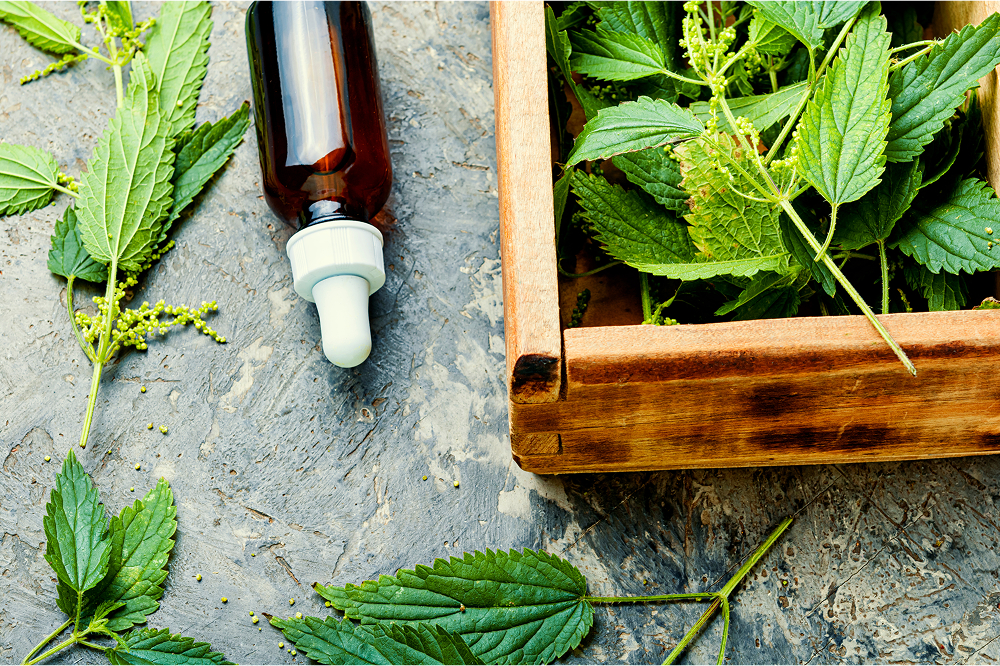
Vertical Farming Beyond Food: Cosmetics and Medicinal Plants
Vertical farming is revolutionizing agriculture by enabling the cultivation of food, medicinal, and cosmetic plants in urban environments. With controlled growing conditions, vertical farms are ideal for producing a wide range of plants, from therapeutic herbs to high-demand cosmetic ingredients. A notable advancement is the cultivation of medicinal cannabis, increasingly recognized for its benefits in treating conditions like chronic pain, anxiety, and epilepsy. As technology evolves, vertical farming is emerging as a sustainable and efficient solution to meet the growing demand for plant-based remedies, skincare products, and medical cannabis, all while reducing the environmental impact of traditional farming.
Medicinal Plants as a Key Component in Human Health
Medicinal plants have played a crucial role in human health for centuries, valued for their therapeutic properties in treating a variety of conditions. As the demand for natural and holistic remedies continues to grow, interest in these plants is increasing. While traditional agriculture still plays a major role in their cultivation, vertical farming is becoming increasingly significant as it allows for the production of high-quality medicinal plants in controlled environments.
Among the most well-known and valued medicinal plants being cultivated today are:
- Ginseng – Known for its energizing and revitalizing properties, ginseng helps improve concentration, reduce stress and fatigue, and boost the immune system. It also acts as a natural tonic for overall health.
- Echinacea – Most famous for its ability to strengthen the immune system and help prevent and treat colds and flu. It is also effective in fighting infections, particularly respiratory, and may shorten the duration of illnesses.
- Lavender – Valued for its calming properties, lavender is used to treat insomnia, anxiety, and stress. It is also used in aromatherapy and skincare products due to its soothing fragrance and antimicrobial properties.
- Chamomile – Known for its calming effects, especially in treating insomnia, digestive issues, and stress. It is also used to soothe skin irritations and improve overall health.
- Iris – Used for its anti-inflammatory and analgesic properties, iris helps in the treatment of skin diseases, inflammations, and pain. It has also been used in traditional medicine for detoxifying the body.
- Calendula – Known for its antiseptic, antibacterial, and anti-inflammatory properties. It is used to treat skin irritations, burns, and wounds, and is often found in skincare products for its regenerative properties.
Cannabis in Vertical Farming as an Innovative Solution for Medicinal Needs
Cannabis has become one of the most important plants in the field of medicinal agriculture, with its application rapidly increasing worldwide, especially in treating conditions such as chronic pain, anxiety, and epilepsy. As the legalization of medicinal cannabis grows, so does the need for efficient, high-quality cultivation methods that can meet strict regulations and high production standards. Vertical farming has emerged as one of the most promising solutions, offering controlled environments that optimize growth and cannabinoid production.
Optimizing Cannabis Growth in Vertical Farms
Cannabis is highly sensitive to its growing conditions and requires specific parameters such as light, humidity, and temperature. Vertical farming systems provide precise control of these factors, creating an ideal environment for cannabis. By using hydroponic or aeroponic systems, cannabis roots can absorb the perfect mix of nutrients, eliminating the risk of soil contamination. Additionally, artificial lighting systems can be adjusted to mimic natural sunlight cycles, accelerating growth and increasing cannabinoid content.
Efficiency and Sustainability of Vertical Cannabis Cultivation
Cannabis typically requires large areas for cultivation due to its size, but vertical systems allow for multi-layered cultivation, maximizing space and increasing production. This method enables farms to produce more plants on less land, which is especially useful in urban environments where space is limited. Moreover, vertical farms reduce the need for pesticides, herbicides, and other chemicals, making cannabis production cleaner and more sustainable.
Quality Control and Legal Compliance
Given the increasingly stringent regulations in the cannabis industry, vertical farming offers an efficient solution for compliance with legal standards while maintaining high production standards. The controlled environment in vertical farms allows for precise shaping of the chemical profile of plants, ensuring consistency in quality and cannabinoid levels such as THC and CBD. This is crucial in meeting the growing demand for specific products in the medicinal cannabis market.
Cosmetic Plants: A Natural Revolution in Beauty
In addition to their medicinal properties, many plants are cultivated for their cosmetic benefits, and vertical farming is becoming a key method for producing these sought-after ingredients. The cosmetic industry is increasingly turning to plants as a natural alternative to chemical products, recognizing their potential in anti-aging treatments and skin hydration. Vertical farms allow for the efficient cultivation of a wide range of cosmetic plants in urban environments, providing a sustainable and reliable source for these ingredients.
Some of the most sought-after cosmetic plants grown in vertical farms include:
- Rosemary – Known for stimulating hair growth and improving scalp health.
- Chamomile – Valued for its soothing properties, especially for sensitive skin.
- Tulips – Used in luxury perfumes and skincare products due to their fragrant oils.
- Iris – Recognized for its antioxidant properties and ability to hydrate and rejuvenate the skin.
- Calendula – Often used for treating dry and irritated skin due to its healing properties.
- Johansson’s Herb – Known for its anti-inflammatory effects, calming skin issues such as eczema and acne.
As the cosmetic industry continues to shift toward natural and sustainable solutions, vertical farming is providing an effective way to cultivate these plants, reducing environmental impact while meeting growing global demand.
The Future of Vertical Farming in Medicinal and Cosmetic Plant Production
Vertical farming is set to transform the production of medicinal plants, cannabis, and cosmetic ingredients, offering a sustainable and efficient solution for urban agriculture. As demand for natural remedies and beauty products grows, vertical farms provide a way to cultivate high-quality plants in controlled environments, optimizing space and resources. This method not only meets the need for locally produced, sustainable crops but also reduces environmental impact by minimizing transportation and land use. Given the increasing demand for plant-based solutions and the rapid growth of urban populations, investing in vertical farming is essential for ensuring a sustainable and reliable future for both the medicinal and cosmetic industries. As technology advances, vertical farming will play a key role in providing a consistent, high-quality source of plant-based solutions for health, wellness, and beauty.






